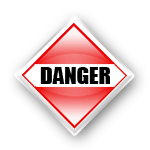How to remove Command Service (ads, banners, deals)
Threat's profile 
Name of the threat:Command Service
Command or file name:windowsx.exe
Threat type:Adware
Affected OS:Win32/Win64 (Windows XP, Vista/7, 8/8.1, Windows 10)
Affected browsers:Google Chrome, Mozilla Firefox, Internet Explorer, Safari
Global Internet marketers invariably shape something new to constrain spyware-adware sexy to users. Spyware-adware is produced by cybercriminals concerned in gaining benefit or wreaking havoc, so it is reasonable to setup spyware-adware removal tools to remove spyware-adware. If spyware-adware came from shareware programs it's often damaged and while working displays unnecessary, periodic notifications, so, remove spyware-adware a.s.a.p.. There are no symbols of spyware-adware presence on PC since spyware-adware does not tag anything to the PC tray nor the application menu making it harder to execute spyware-adware removal operation. There may be an grew risk of exposure to unwanted or unsavory information content when you don't have spyware-adware removal tools. Spyware-adware is not as non-ill-intentioned as it may look at the first gaze, so spyware-adware removal is harshly advised.
Command Service intrusion method
Command Service installs on your PC along with free software. This method is called "bundled installation". Freeware offers you to install additional module (Command Service). Then if you fail to decline the offer it starts hidden installation. Command Service copies its file(s) to your hard disk. Its typical file name is windowsx.exe. Then it creates new startup key with name Command Service and value windowsx.exe. You can also find it in your processes list with name windowsx.exe or Command Service. Also, it can create folder with name Command Service under C:\Program Files\ or C:\ProgramData. If you have further questions about Command Service, please ask below. You can use programs to remove Command Service from your browsers below.
Download Removal Tool
Download this advanced removal tool and solve problems with Command Service and windowsx.exe (download of fix will start immediately):
Download WiperSoft Antispyware to remove Command Service
* WiperSoft Antispyware was developed to remove threats like Command Service in automatic mode. Remover has active module to protect PC from hijackers, trojans, ransomware and other viruses. Trial version of Wipersoft provides detection of computer viruses for FREE. To remove malware, you have to purchase the full version of Wipersoft.
Features of WiperSoft Antispyware Malware Remediation Tool
- Removes all files created by viruses.
- Removes all registry entries created by viruses.
- You can activate System and Network Guards and forget about malware.
- Can fix browser problems and protect browser settings.
- Removal is guaranteed - if Removal Tool fails ask for FREE support.
- 24/7 Spyware Helpdesk Support included into the package.
Download Spyhunter Remediation Tool by Enigma Software
Download antimalware designed specifically to remove threats like Command Service and windowsx.exe (download of fix will start immediately):
Download AntiMalware to remove Command Service
Features of Spyhunter Remediation Tool
- Removes all files created by Command Service.
- Removes all registry entries created by Command Service.
- Fixes browser redirection and hijack if needed.
- "Toolbar Remover" tool will help you get rid of unwanted browser extensions.
- Removal is guaranteed - if Spyhunter Remediation Tool fails ask for FREE support.
- 24/7 Helpdesk Support and 5 hours of Remote Support via GoToAssist included into the package.
Let our support team solve your problem with Command Service and remove Command Service right now!
Submit support ticket below and describe your problem with Command Service. Support team will offer you solution in several minutes and give a step-by-step instruction on how to remove Command Service. Trouble-free tech support with over 10 years experience removing malware.
Submit support ticket

Threat's description and solution are developed by
Security Stronghold security team.
Here you can also learn:
How to remove Command Service manually
This problem can be solved manually by deleting all registry keys and files connected with Command Service, removing it from startup list and unregistering all corresponding DLLs. Additionally missing DLL's should be restored from distribution in case they are corrupted by Command Service.
To get rid of Command Service, you should:
- MTE3NDI6ODoxNg.exe
- cmdinst.exe
- asappsrv.dll
- p4yrsrl5qi1kwa6hk5l5wal5w0.vbs
- atmtd.dll
- atmtd.dll._
- MTE3NDI6ODoxNgnew.exe
- p4yrsrl5pz5rg4pug4xdtt.vbs
- command_small[1].gif
- d9430b08.exe
- id.exe
- installer[2].exe
Warning: you should delete only those files which checksums are listed as malicious. There may be valid files with the same names in your system. We recommend you to use WiperSoft Antispyware Malware Remediation Tool for safe problem solution.
**Trial version of Wipersoft provides detection of computer viruses for FREE. To remove malware, you have to purchase the full version of Wipersoft.
- %windows%\vk1xyxjlwfbqcm9eqlrlc3rlcg\
- %windows%\vk1xyxjlv2lumksxmkdpzw\
- %profile%\local settings\temporary internet files\content.ie5\shergt23\
- Key:
SOFTWARE\Microsoft\Windows\CurrentVersion\Uninstall\{3877C2CD-F137-4144-BDB2-0A811492F920}
Value: Contact
- Key:
SOFTWARE\Microsoft\Windows\CurrentVersion\Uninstall\{3877C2CD-F137-4144-BDB2-0A811492F920}
Value: DisplayName
- Key:
SOFTWARE\Microsoft\Windows\CurrentVersion\Uninstall\{3877C2CD-F137-4144-BDB2-0A811492F920}
Value: DisplayVersion
- Key:
SOFTWARE\Microsoft\Windows\CurrentVersion\Uninstall\{3877C2CD-F137-4144-BDB2-0A811492F920}
Value: NoModify
- Key:
SOFTWARE\Microsoft\Windows\CurrentVersion\Uninstall\{3877C2CD-F137-4144-BDB2-0A811492F920}
Value: NoRemove
- Key:
SOFTWARE\Microsoft\Windows\CurrentVersion\Uninstall\{3877C2CD-F137-4144-BDB2-0A811492F920}
Value: NoRepair
- Key:
SOFTWARE\Microsoft\Windows\CurrentVersion\Uninstall\{3877C2CD-F137-4144-BDB2-0A811492F920}
Value: UninstallString
- Key: System\CurrentControlSet\Services\cmdService
Value: Type
- Key: System\CurrentControlSet\Services\cmdService
Value: Start
- Key: System\CurrentControlSet\Services\cmdService
Value: ErrorControl
- Key: System\CurrentControlSet\Services\cmdService
Value: ImagePath
- Key: System\CurrentControlSet\Services\cmdService
Value: DisplayName
- Key: System\CurrentControlSet\Services\cmdService\Security
Value: Security
- Key: System\CurrentControlSet\Services\cmdService
Value: ObjectName
- Key: SYSTEM\CURRENTCONTROLSET\ENUM\ROOT\LEGACY_CMDSERVICE
Value: NextInstance
- Key: SYSTEM\CURRENTCONTROLSET\ENUM\ROOT\LEGACY_CMDSERVICE\0000\Control
Value: *NewlyCreated*
- Key: SYSTEM\CURRENTCONTROLSET\ENUM\ROOT\LEGACY_CMDSERVICE\0000
Value: Service
- Key: SYSTEM\CURRENTCONTROLSET\ENUM\ROOT\LEGACY_CMDSERVICE\0000
Value: Legacy
- Key: SYSTEM\CURRENTCONTROLSET\ENUM\ROOT\LEGACY_CMDSERVICE\0000
Value: ConfigFlags
- Key: SYSTEM\CURRENTCONTROLSET\ENUM\ROOT\LEGACY_CMDSERVICE\0000
Value: Class
- Key: SYSTEM\CURRENTCONTROLSET\ENUM\ROOT\LEGACY_CMDSERVICE\0000
Value: ClassGUID
- Key: SYSTEM\CURRENTCONTROLSET\ENUM\ROOT\LEGACY_CMDSERVICE\0000
Value: DeviceDesc
- Key: SYSTEM\CURRENTCONTROLSET\SERVICES\cmdService\Enum
- Key: SYSTEM\CURRENTCONTROLSET\SERVICES\cmdService\Enum
Value: Count
- Key: SYSTEM\CURRENTCONTROLSET\SERVICES\cmdService\Enum
Value: NextInstance
- Key: System\CurrentControlSet\Services\cmdService
Value: ImagePath
Warning: if value is listed for some registry entries, you should only clear these values and leave keys with such values untouched. We recommend you to use WiperSoft Antispyware Malware Remediation Tool for safe problem solution.
Uninstall Command Service related programs from Control Panel
We recommend you to check list of installed programs and search for Command Service entry or other unknown and suspicious programs. Below are instructions for different version if Windows. In some cases adware programs are protected by malicious service or process and it will not allow you to uninstall it. If Command Service won't uninstall or gives you error message that you do not have sufficient rights to do this perform below instructions in Safe Mode or Safe Mode with Networking or use WiperSoft Antispyware Malware Remediation Tool.
Windows 10
- Click on the Start menu and choose Settings
- Then click on System and choose Apps & Features in the left column
- Find Command Service under in the list and click Uninstall button near it.
- Confirm by clicking Uninstall button in opened window if necessary.
Windows 8/8.1
- Right click on the bottom left corner of the screen (while on your desktop)
- In the menu choose Control Panel
- Click Uninstall a program under Programs and Features.
- Locate programs that can be connected with Command Service or other related suspicious program.
- Click Uninstall button.
- Wait until uninstall process is complete.
Windows 7/Vista
- Click Start and choose Control Panel.
- Choose Programs and Features and Uninstall a program.
- In the list of installed programs find entries related to Command Service
- Click Uninstall button.
Windows XP
- Click Start
- In the menu choose Control Panel
- Choose Add / Remove Programs.
- Find Command Service related entries.
- Click Remove button.
Remove Command Service related extensions from your browsers
Command Service in some cases can be accompanied with browsers extension. We recommend you to use free option Toolbar Remover under Tools in Spyhunter Remediation Tool to remove unwanted browser extensions related to Command Service. We recommend you to perform scan your PC with Removal Tool or Spyhunter Remediation Tool. To remove extenions from your browsers manually do the following:
- While in Internet Explorer click cogwheel icon in the top right corner
- In the menu choose the Manage Add-ons
- Select Toolbar and Extension tab.
- Choose add-on possibly related to Command Service or other related adware BHO.
- Click Disable button.
Warning: This option will only disable unwanted plugin. For effective Command Service removal use WiperSoft Antispyware Malware Remediation Tool.
- Start Google Chrome.
- In the address bar type chrome://extensions/
- In the list of add-ons find related to Command Service and click recycle bin icon.
- Confirm Command Service removal.
- Open Firefox
- In the address bar type about:addons
- Click Extensions tab.
- In the list of extension locate ones related to Command Service.
- Click Remove button near it.
Protect computer and browsers from infection
Adware threats like Command Service are very widespread and, unfortunately, many anti-virus programs fail to detect it. To protect your computer from future infection we recommend you to use WiperSoft Antispyware Malware Remediation Tool, it has active protection module and browser settings guard. It does not conflict with any anti-virus programs and creates additional shield against threats like Command Service.
Here are the descriptions of problems connected with Command Service and windowsx.exe we received earlier:
Popular pest: cydoor
« Back to catalog
Problem Summary: I can't find or get rid of Command Services
I've tried every free virus program I can find, none works. I've tried to locate it with "ISeeYouXP" and "ExploreXP" and can't find anything remotely named Cmndsvc or anything that even resembles it. My AOL spyware finds it and blocks it, but it comes back in minutes if not seconds. It (AOL) won't tell me where it is. It eats up my CPU usage and/or activates "system Idle Process" even while I'm trying to use it (even while typing, sometimes). I can't start in safe mode or run a disk check program or start windows(XP) normally. I can only start in Last known Good Conf. I can't do a restore point. I've tried many antivirus and spyware programs and even trie one named Delcmdsvc, nothing works. Any help or advice would really be appreciated. I've never had one I couldn't get rid or find. I've had this one since early May!!
Problem was successfully solved. Ticket was closed.